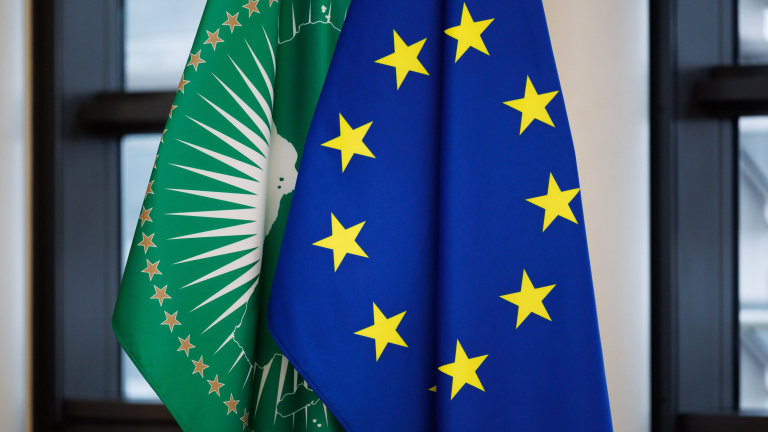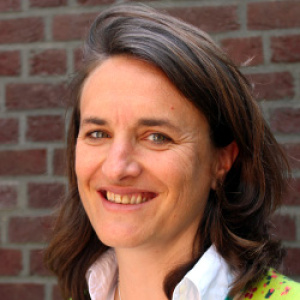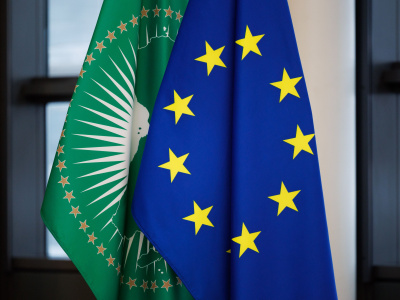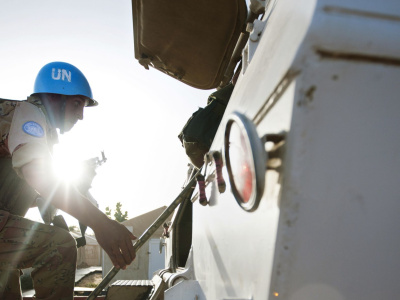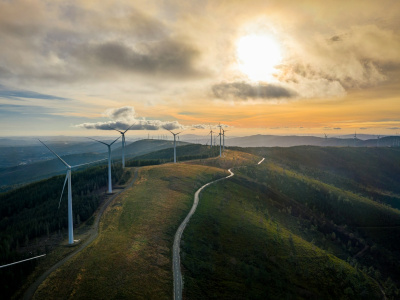
Eight challenges for AU-EU relations
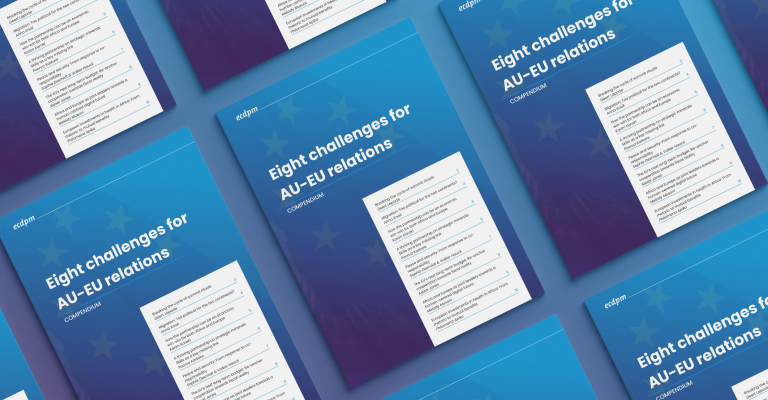
Authors
As the African Union (AU) and the European Union (EU) prepare to meet in Luanda on 24-25 November 2025, it is time to reflect on what this 25-year partnership has meant, what it means today and how it can evolve in a meaningful way in a drastically different geopolitical context.
The AU-EU partnership has transitioned from a largely development-focused relationship to a broader political and strategic dialogue. Yet, despite this growing agenda, the partnership continues to wrestle with familiar challenges: asymmetries in power and perception, uneven implementation, and the persistent gap between political declarations and operational delivery. These difficulties are further intensified by a constantly changing geopolitical landscape that the two continents must navigate.
This compendium brings together a set of thematic analyses that seek to inform the debate in the run-up to the summit. ECDPM experts provide their perspective on the key issues shaping the partnership today.
Explore the compendium
 Geert Laporte, ECDPM Associate
Geert Laporte, ECDPM Associate
The 7th AU-EU heads of state summit is not only a moment to celebrate 25 years of formal Africa-Europe relations, but it comes at a moment when the AU-EU partnership risks drifting into ritualised performance rather than strategic engagement. As for every summit since 2000, a euphoric declaration will stress the ‘uniqueness’ and ‘strategic relationship’. Yet after each summit, scepticism and cynicism persist, the loop continuing, as tensions are hidden. To break this cycle of ritualised summitry, both parties must use the time between summits to address their real disagreements and redefine their partnership in a fast-changing geopolitical environment.
Over the years, AU-EU summits have repeated familiar patterns. In Brussels, a few EU officials draft an ambitious joint vision or declaration to be adopted during the summit about equality, shared values and common interests, masking longstanding political tensions. Meanwhile, costly and poorly prepared side events by think tanks, civil society, youth and business organisations give the illusion of inclusivity. The EU’s promises of vast but vague financial packages do little to offset perceptions of paternalism. As former diplomat Pierre Vimont observed, “we don’t speak the same narrative.” Africa now has many partners – from China to the BRICS – and the EU can no longer claim to be its unique partner.
The Global Gateway strategy, Europe’s supposed answer to China’s Belt and Road Initiative, has mobilised interest from the African side, but was inadequate to restore trust. It focuses on investments rather than repairing the political fractures that shape African perceptions of Europe. A fresh approach is needed – one built on clear articulation of interests from each side. The EU should recognise that Africans are tired of its hypocritical behaviour, like with COVID-19, the ‘migration crises’ and Russia’s war on Europe’s eastern borders.
Africa, for its part, should assert its priorities more clearly, possibly building on Agenda 2063 to drive a shared strategy. A clear long-term strategic African vision on the relationship could also be beneficial to the partnership – so far, there is no African strategy vis-à-vis the EU that focuses on improving the quality of the partnership and building consensus in all major, substantial areas. Overall, the African side tends to be reactive rather than proactive, often waiting for the EU to draft the initial version and then reacting quite late, which makes it difficult to amend anything.
Real progress must happen between summits, through a structured and well-prepared process that tackles mutual frustrations and includes civil society, youth, businesses, and think tanks in a meaningful way. Ultimately, the partnership must align with today’s rapidly changing geopolitical world. For Europe to remain relevant, it must support Africa’s demands for fairer global representation and shed its post-war dominance. The AU-EU summit should therefore mark not another rhetorical milestone but the beginning of a more honest, balanced and politically grounded AU-EU relationship.
 Anna Knoll, ECDPM head of migration and mobility
Anna Knoll, ECDPM head of migration and mobility
As the AU-EU summit approaches, migration will once again be a key focus of the agenda. Yet the challenge is to move beyond crisis reflexes and transactional bargaining. Despite balanced language in the AU-EU framework, much of the operational focus has in the past remained on short-term management of irregular flows and returns rather than long-term mobility cooperation. A more durable framework would recognise mobility as an economic and strategic dimension of the partnership, central to the future competitiveness and demographic sustainability of both continents.
Both continents are navigating profound transitions: a rapidly greening global economy, accelerating digitalisation, and shifting labour markets. Europe’s ageing population and Africa’s expanding youth cohort could be mutually beneficial if linked through a coherent framework for education, skills and mobility. Initiatives such as the EU’s Talent Partnerships or the AU’s Free Movement Protocol already point in this direction. The task now is to connect these building blocks to a broader economic vision that reflects real labour market needs. This does not mean an ever-expanding set of legal pathways. Rather, it calls for a predictable, balanced approach that embeds migration governance within long-term planning and competitiveness strategies.
The AU-EU partnership should play to its comparative strength: articulating a shared vision that national or bilateral arrangements alone cannot deliver. Yet this requires greater policy coherence and regional diplomacy. Bilateral deals still dominate, often at the expense of a continental framework that could create stability and trust. A more strategic AU-EU dialogue could align talent partnerships, skills recognition, and green-skills mobility with regional investment and industrial policies.
Ultimately, migration should become a normal, depoliticised part of the partnership’s economic and social architecture, which is discussed alongside trade, energy, and digital transitions rather than framed as crisis management. The real test for both sides is whether they can turn that vision into lasting practice.
 Karim Karaki, ECDPM head of economic recovery and transformation
Karim Karaki, ECDPM head of economic recovery and transformation
The AU-EU summit arrives at a time when Africa’s debt pressures and limited fiscal space are constraining its capacity for new investment opportunities. Any rollout of the EU’s Global Gateway investment package, therefore, needs to first better link and address the debt and investment nexus. Building on the momentum around the Sevilla compromise and its action initiatives platform, the summit should discuss and progress on the issue of debt and investments by proposing concrete approaches, instruments (Climate Resilient Debt Clauses, debt-for-development swaps, local currency), and reform at the multilateral level (G20 and IMF). Leaving the debt issue in the margins will only undermine the AU-EU partnership and its credibility.
Beyond the financial architecture, instruments and approach, the partnership must ask more strategic questions, such as: which policy areas – critical raw materials (CRM), health, energy, digital, etc – can investments be most strategic and strengthen mutually beneficial partnerships? Keeping in mind European geostrategic interests and supporting industrialisation endeavours in Africa. Importantly, to facilitate trade, investments, and finance, a holistic approach is required that addresses the business and regulatory environments, skills shortages, and ensures strong ESG standards and principles. A better coordination of these efforts and investments would help unlock finance at a greater scale and for impact to benefit both continents.
Yet one problem persists: much of the AU-EU engagement remains supply-driven rather than demand-driven. When asking African countries what benefits a win-win partnership with the EU would look like, many emphasise local value addition, industrialisation and economic transformation. At the same time, the EU desires to forge mutually beneficial and not extractive partnerships, which is the sine-qua-non condition to build strategic partnerships that can strengthen the EU's open strategic autonomy. Now, more efforts should be put into translating this into practice, especially in key sectors like CRM, energy, digital and health and education. Such sector-specific partnerships – like we already see with the Comprehensive Transport and Industrial Partnerships (CTIPs), Digital Dialogues and CRM partnerships – could make collaboration between both parties more pragmatic and meaningful.
The next EU budget, the MFF, offers ways to improve the toolbox and make it more fit-for-purpose to deliver on European development and geostrategic interests whilst supporting African policy priorities. Mobilising private capital at scale by attracting African and European institutional investors, remaining engaged in fragile contexts to foster additionality and impacts, and better factoring in EU economic interests can help deliver a more meaningful partnership between Africa and the EU. Importantly, not addressing the key issues presented above is taking the risk of seeing Europe lose credibility vis-à-vis African countries as well as geopolitical and economic influence.
 Poorva Karkare, Senior Policy Analyst
Poorva Karkare, Senior Policy Analyst
African countries hold vast reserves of critical minerals essential for the global green transition. However, a lack of skills remains a major constraint to adding value locally. These skills differ by industry – mining demands expertise in geology and extractive engineering, while refining relies on chemistry and metallurgy – and vary across levels – from technical trades to managerial and engineering roles (see our work on Guinea). Developing such skills requires more than isolated projects; it needs real opportunities. Early successes should then be scaled regionally and continentally, treating skills provision as a regional public good rather than a national effort.
For the EU, which relies on external sources for critical minerals, partnerships with Africa offer a means to align its supply security with Africa’s value-added ambitions. The EU’s Global Gateway strategy, Critical Raw Materials Act, and related partnerships already identify skills as a key pillar, but these efforts remain fragmented across the EU, its member states, as well as private sector-led initiatives. To make a real impact, the EU and its member states need to consolidate existing initiatives, align them with concrete industrial needs, and better link their instruments to the EU's broader geostrategic goals.
These priorities can complement one another neatly through an AU-EU partnership on critical minerals. Third-country partners, notably China, may also offer valuable lessons on how this can be achieved.
At the same time, Africa’s industrial aspirations extend well beyond extractives. Industrialisation across Africa – whether driven by mineral resources, the digital economy or other sectors – requires addressing the continent's critical electricity deficit. The availability, reliability and affordability of electricity are among the major hurdles to private sector development in Africa. While China has been among the front-runners in providing energy and other infrastructure to Africa, the EU’s Global Gateway strategy, with its €150 billion allocation for Africa, could also fill the estimated $170 billion annual financing gap on the continent. The key now is to shift from feasibility studies, a major contribution by the EU, to concrete investments that meet both social and environmental standards.
Equally important is the target group of such investments. While 600 million Africans lack access to electricity, focusing solely on this group isn't the most effective approach in terms of development. Many state utilities are debt-saddled, and renewables – while promising – require large upfront costs. African households can neither afford the electricity at commercial rates nor make much productive use of it, given that they are poor. Given both limited fiscal space and purchasing power, the initial focus should be on energy provision for such productive use by powering firms to create jobs and growth. Thus, electricity should be treated as a catalyst for growth, not just a social good, that is, power the economy, and people will power their homes. When livelihoods improve, no one chooses to stay in the dark.
Thus, cross-cutting issues such as skills and infrastructure, which are relevant for the current and highly pertinent issues of critical minerals, could be a clear topic of discussion at the upcoming AU-EU summit in Angola.

 Sophie Desmidt, ECDPM Associate Director for people, partnerships and peace and Volker Hauck, Senior Executive
Sophie Desmidt, ECDPM Associate Director for people, partnerships and peace and Volker Hauck, Senior Executive
The 2025 AU-EU summit in Luanda, Angola, is taking place in a vastly changed geopolitical landscape compared to the previous summit in 2022. Data shows that conflicts globally have doubled in the past five years. While military spending is at an all-time high, support for peacebuilding, governance and civil society is dwindling. The wars in Ukraine, Gaza and Sudan have highlighted fractures in the AU-EU peace and security partnership.
But despite lukewarm interest in the summit, it does offer another chance to redefine and revitalise their peace and security partnership in line with these shifting geopolitical realities and mutual priorities. Whereas the peace and security partnership has primarily focused on how Europe and Africa can respond to conflict in Africa, both continents can attempt to move beyond traditional dynamics by co-developing strategic frameworks that emphasise shared responsibility, regional leadership, and sustainable peace architectures between both regions, but also globally.
The EU and AU will need to make choices: How important do both partners deem the partnership? How can the AU and EU actually commit to a peace and security collaboration beyond summits and annual consultative meetings? How can they align their positions on increased African representation in the Security Council? What will the EU and AU do jointly to actually make the global peace and security architecture more effective, more representative and more legitimate? How can they pull their collective weight to operationalise the UN Security Council resolution 2719 on UN funding for African peacekeeping operations?
Achieving tangible results on these issues would help foster strong trust and shared responsibility to respond to both global peace and security challenges and security challenges in both Europe and Africa. This will not happen at the summit but it should nevertheless be used as a platform (but not an endpoint) to align African and European perspectives on multilateral peacebuilding – addressing historical grievances, promoting stronger collaboration within the UN, pushing for realistic but tangible reforms of global governance institutions (including working methods and representation in the UN Security Council), and propose joint responses to global peace and security challenges.
 Alexei Jones, ECDPM Head of European foreign and development policy
Alexei Jones, ECDPM Head of European foreign and development policy
As Europe prepares its next Multiannual Financial Framework (MFF), African partners will scrutinise not only the size of the external budget but also the political choices shaping it. The current MFF, running through 2027, totals €1.2 trillion (excluding NextGenerationEU), and the design of its successor will have profound consequences for Europe’s global engagement – especially its partnership with Africa.
Negotiations already underway for the 2028-2034 MFF arrive at a challenging moment. Competing priorities – competitiveness, security and resilience risks – define the difficult financial and political trade-offs that member states and EU institutions must navigate. The risk is that budget pressures lead to a more crisis-driven, short-term approach, undermining the predictability and stability of resources for external partnerships. Yet, this recalibration can also offer a chance to re-anchor cooperation in a more strategic, long-term partnership with Africa, moving beyond transactional deals towards truly mutual benefit.
Within this frame, it is vital that external action is not seen as an ‘add-on’ but as a strategic necessity. Europe can no longer afford to compartmentalise internal and external priorities. Aligning Europe’s internal ambitions – such as competitiveness, regulatory consistency, and security – with its global agenda, especially regarding Africa and the Global South, is now a central challenge for budget negotiations. A strategic MFF will therefore need to bridge communities working on domestic priorities with those focused on international partnerships, fostering dialogue and coherence between policy areas.
For African partners, the priorities are ensuring that flexibility does not weaken predictable commitments, that investment tools truly mobilise finance at scale, and that programming remains open, inclusive, and centred on African priorities.
The summit can help steer the conversation away from transactional deals towards a forward-looking agenda that aligns Europe’s strategic interests with Africa’s transformation ambition, strengthening credibility and co-ownership as the new Global Europe instrument takes shape.
 Melody Musoni, Policy Analyst
Melody Musoni, Policy Analyst
Digital cooperation between Africa and Europe has become central to their broader strategic relationship. Discussions around data governance, innovation and artificial intelligence create a window for both continents to position themselves jointly in shaping an inclusive and human-centred digital future.
Ahead of the AU-EU summit, the G20 is held in South Africa, whose agenda also focuses on digital connectivity, innovation ecosystems, digital public infrastructure, and equitable, inclusive and just AI. Building on this, Europe and Africa should expand existing partnerships (e.g. Team Europe Initiatives and Global Gateway investments) and explore various win-win investment opportunities, shaping a collaboration which promotes the African local innovation ecosystem and SMEs, while also creating opportunities for the European private sector.
The two regions need joint approaches to AI research and co-creation while guaranteeing African data ownership – a critical distinction from current practices. This might require taking stock of what is working or not working under the AU-EU Innovation Agenda or the Africa-Europe Innovation Platform. Such a change is necessary to fully realise the G20’s goal of an inclusive digital economy that promotes innovation tailored to the needs and benefits of local people and communities in both regions. A practical step is to jointly establish ‘Ethical AI Co-Development Hubs’ to ensure inclusive, responsible, safe and just AI development.
Beyond cooperation on specific projects, the AU–EU partnership should shape a more inclusive and ethical global governance framework for artificial intelligence. This requires moving beyond simply exporting EU regulations, such as GDPR, toward genuine regulatory alignment. It also means navigating the binding EU AI Act and the non-binding AU Continental AI Strategy to promote inclusive, ethical AI governance. This demands negotiation. Europe should be open and willing to negotiate some of its restrictive laws, which might make it difficult for African tech and AI companies to access the EU market. Africa, on the other hand, should also be open to promoting alignment when developing AI laws. Such mutual flexibility strengthens rather than weakens the quality of governance.
With both the G20 and AU-EU summit, Africa and Europe can position themselves as joint leaders in a human-centred digital future by promoting data governance initiatives to consistently prioritise ethical, inclusive, safe and just digital frameworks. Building on the EU’s human-rights-based approach and Africa’s advocacy for equitable and just AI (via the South Africa G20 Presidency), they must cooperate to protect human (digital) rights and ensure the benefits of the digital economy are widely shared.
 Philomena Apiko, Policy Analyst
Philomena Apiko, Policy Analyst
The AU-EU health partnership is evolving towards ‘mutual interests’, with lessons drawn from the COVID-19 pandemic and a focus on supporting health security and sovereignty. Five dedicated health Team Europe Initiatives and a joint high-level steering meeting provide structural foundations. However, beyond policy alignment, commitments must be translated into sustainable investments in local and regional manufacturing, health system strengthening, workforce development and innovation.
First, this translation requires scaling up the use of innovative financing, as aid globally decreases and specifically in health, due to US aid cuts. Debt-to-health swaps are gaining traction within Africa, but do not have the same level of commitment from European partners. The summit should encourage commitment from EU member states to explore the use of debt swaps – especially as it gives fiscal space for beneficiary countries to invest in health. Innovative funding, such as the Human Development Accelerator (HDX), under the Global Gateway strategy, facilitates investment opportunities that create a better environment for health systems, as well as enhanced manufacturing capacities for health products and technologies.
Blended financing under HDX to help BioNTech advance its mRNA manufacturing site in Rwanda to strengthen the country’s role as a hub for medical innovation is a good example of how European health technology can be further promoted and deliver real impact on the ground, showing that development and geostrategic interests are not mutually exclusive. Similarly, the European Investment Bank (EIB) and MedAccess innovative Guarantee Agreement to help improve access to critical health products in Africa is a step in the right direction and should be built upon.
The AU-EU summit provides the opportunity to further the cooperation on local and regional manufacturing through the expanded Partnership for Platform for Harmonised African Health Manufacturing (PHAHM) beyond vaccines towards the production of the AU’s 24 priority medical products list. Similarly, Team Europe’s support for the Africa Pooled Procurement Mechanism (APPM) – which was recently launched in October – would improve efficiency and access to medical products by consolidating the demand and purchasing power of countries. Procurement cooperation on innovations like lenacapavir – a pre-exposure prophylaxis (PrEP) option for HIV prevention viewed as a game-changer in global HIV response – merits scaling.
Joint efforts should accelerate support for Africa's health workforce development and pharmaceutical and vaccine manufacturing skills – essential components for realising health sovereignty.
Likewise, anchoring the health partnership to the AU-EU Innovation Agenda has mutual benefits through facilitating co-created innovation ecosystems, where African and European institutions jointly invest in research, technology transfer, and digital health solutions. These initiatives highlight that European investments in health in Africa can truly serve mutual interests and create win-win partnerships, and the summit is an important stage to make this a reality.
Our work on the AU-EU relations
Explore our dossier featuring ECDPM’s work on the AU-EU relations, with insights on a variety of topics.
Get in touch
Would you like to know about our work on the AU-EU summit or the partnership between the two continents, engage our expertise or share your thoughts? Get in touch with Kathleen Van Hove. For media enquiries, please contact Isabell Wutz or Virginia Mucchi.












